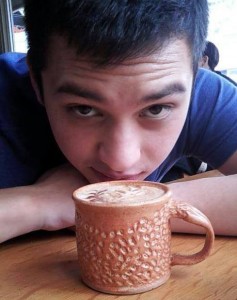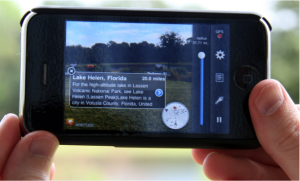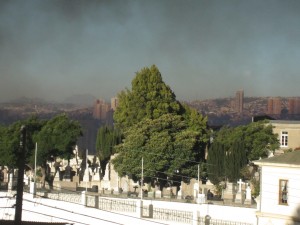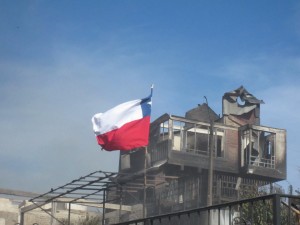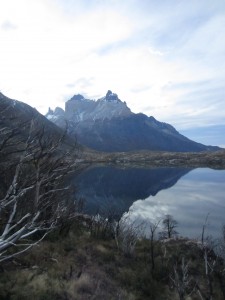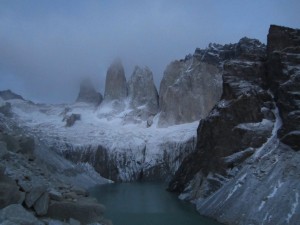In which all is revealed.
To my dear reader,
Here we are, at the end of this stretch of the road, and where should I be writing this but a Starbucks? True, it is a Starbucks in Raleigh, North Carolina, and the air is thick and bright with the lazy Southern sun rather than the cool Northwestern one, but a Starbucks it is nonetheless. This is, in truth, one of the things I love about Starbucks; although it is by no means my favorite coffee shop, I cannot help but feel at home there. My mother has been going there with me for as long as I can remember. The patterns on the walls are always the same, the green tea lattes always bittersweet, the music mild, and the view from the chairs by the window good enough. It feels almost as if Starbucks has always existed, since before the beginning of the universe, simply waiting until the Big Bang to nestle itself beside supermarkets and along busy streets, and Starbucks will be here long after we are all gone. When the universe is cold and empty, Starbucks will remain.
So sit here I shall, with an iced, 12 ounce green tea latte to my left, and write my Sophomore Farewell. As so much of my life revolves around music, I shall close my little career as a sophomore music major with three songs I have selected to describe it. This is a tradition I began last year, with my best friend Spencer Orbegozo (Foothills Community College, ’16), wherein each year we select three songs to describe the school year. We then proceed to explain our selections to one another as we drive along the California highway, and belt them out the windows to the chagrin of everyone nearby.
All three of my selections are by my favorite pop artist (alongside Ke$ha and Katy Perry), Sara Bareilles, and come from her most recent album The Blessed Unrest. In another life, I would have chosen something profound and pretentious, such as a piece from my classical repertoire or a symphonic poem, but that is not this life. Regardless, when this album first came out in the summer of 2013, I was rather disappointed. I felt that it was overproduced, somewhat messy in its construction, and lacking in colorful variation. But I downloaded it anyway, out of a sort of fan loyalty to my favorite singer-songwriter, and listened to it somewhat begrudgingly. The year began, and despite my initial reaction to the album, it began to become bizarrely relevant to my life, acting as an unexpected musical narration to the unending struggles of a sophomore music major. Please note that I am joking; in no way do I truly have any struggles.
The first song was “Parking Lot”, which initially caught my attention because of its sassy lyrics and use of repeated melodic ideas in the instruments alongside layered vocals in antiphony (call and response). My freshman year had been, admittedly, somewhat unpleasant, primarily because I felt as if I had not found my home or niche within the school, and had not really been able to throw myself into my major or any activities. Determined to take control over my life (silly me), I joined my a cappella group Underground Sound during the spring of 2013, joined my fraternity Beta Theta Pi in the fall, and secured both the position of Director of Sustainability for the Residential Student Association Executive Board and my current position as a Logger Blogger. I was done, I told the universe, with apathy and disappointment; I would seize my sophomore year by the horns and make it my steed. The universe laughed derisively and leaned back in its chair.
Sara Bareilles’ “Parking Lot”: https://www.youtube.com/watch?v=hmDGv6pSxHE
The second song was “December”, the closing track of the album and a throwback to Sara Bareilles’ earlier, more acoustic and introspective albums. At first, it seemed to me a strange track to close such a full-voiced album that had opened with the anthemic “Brave”, but as the fall of 2013 trudged alone, bringing with it colder weather and the apathy of the sophomore slump, I began to see why. Despite my gung-ho attitude, my determination and my furious drive to make sophomore year different from freshman year, I still was unhappy. Classes were harder, my a cappella group was struggling, and my work with Residential Life was rather unfulfilling. The semester drew to a close and I left the chilly grew of Tacoma behind for the cold, barren stillness of a North Carolina winter. Like the pretentious, introspective loner that I am (again I joke, I am quite sociable to my knowledge), I would wander through the woods with my dog at my side, alternating between listening to The Blessed Unrest, the film score of Harry Potter and the Deathly Hallows Part II, and the film score of Lemony Snicket’s A Series of Unfortunate Events. I felt, at the end of the winter break, that the album was rather like a meditation on change: after the initial burning desire to make the world around you different, the act of doing it becomes something more personal and purposeful, just as the album slowly unwound from anthemic to pensive. I was unhappy because I was holding myself to the same standards and aspirations as I had held arriving in college, but I was becoming a different person and my standards and aspirations needed to change accordingly. I walked in the woods and the universe watched, its head tilted to one side like a curious child.
Sara Bareilles’ “December”: https://www.youtube.com/watch?v=P0ClL3MYaAs
The third and final song is not, technically, on The Blessed Unrest, but I’ll just throw it in the mix anyway. It is “I Just Want You”, and in truth, I have never heard a song that so precisely describes my life. Life is long and difficult, and not really in the way that movies and books might have one believe – as I’m sure you know. It is boring, often colorless, lacking in adventure and ripe with degradation, but more than anything, it is disappointing. Society demands so much of each and every person in all sorts of cruel ways; outstanding GPAs of its students, manicured beauty of its women, insensitive hardness of its men, continuous success of its adults, and always a balance of being intelligent, hardworking, driven, socially conscious, magnanimous, infallible – the list goes on for all of eternity. You can ask the universe for all those things, but at the end of the day, this song says, the most important things are doing something you love, being around people you love and holding an unwavering belief in a better future. I became much happier when I stopped asking myself how much I was fulfilling the universe’s expectation of me and instead asking myself if I was happy with myself. Here endeth the sermon; praise be unto Ron Thom and Segawa be with you.
Sara Bareilles’ “I Just Want You”: https://www.youtube.com/watch?v=IXew0bEh0RY
I only have a few more sips of my latte left now, and the afternoon is drawing to a close. What an adventure it has been! There were dinners with millionaires, some very poor dancing, a few injuries and a rather enormous amount of coffee. I dreamt that geometric shapes were plotting my murder and had an emotional breakdown in a Lakewood parking lot, got my driver’s license, passed my sophomore music proficiency exam and found out that my spirit superhero is Spiderman. And still, there are theaters to work for, music composition programs to attend, fraternity conferences to journey toward… the adventure never ends.
It is possible that I will be writing more posts over the summer, and hopefully I will be doing so next year, but either way, if you’ve read even just this one post, thank you. I don’t know if ANYONE reads these! Maybe I’m paid to meditate on my own life. I’d be down. In the meantime, if you truly miss my babbling rhetoric, then please peruse my new music blog, Dwolfmusic, at http://dwolfmusic.wordpress.com/, wherein I ramble about music composition a little everyday, share some of my own music and generally be silly.
It’s been real, it’s been fun, it’s been real fun. Make good choices! Eat your vegetables! Look both ways before crossing the street! And may Ron Thom’s promise of home be ever in your heart.
With all due respect,
Daniel Wolfert

